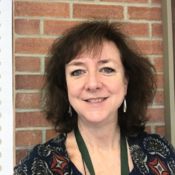
Don is a sustainability and humanities teacher in his 19th year of teaching at Main Street Middle School in Montpelier. Don is working hard to create an innovative, integrated, and dynamic learning environment for all students. His attempts to make education relevant include the development of curriculum tied to sustainability, social justice, integrated literacy, and technology.

Meg teaches humanities to 7th and 8th grade students at Shelburne Community School in Shelburne, Vermont, where she has taught since 1994. Meg cherishes the opportunity to co-create meaningful learning experiences with students and colleagues, with a particular lens on opportunities that foster community and instill social justice and equity.

Kevin is a generalist teacher on Swift House, a 5-8 team, at Williston Central School. He is an advocate for personalized, project-based learning and values being a life-long learner. Most recently he’s integrated ways of cultivating pathways to equity and social justice to his teaching practices.
MGC Conversations is a collaboration of MGC faculty and middle grades educators who meet on a monthly basis to discuss issues related to middle level education. All of our conversations are posted to the Middle Grades Collaborative YouTube channel.
The 2025-26 Middle Grades Conversation series continues to build professional learning community with middle level educators. Middle Grades Conversations will bring educators together to discuss building supportive learning communities, engage learners and families and integrate equity-based antiracist teaching into our practices. This year, we will also reconnect with our Middle Grades Institute participants in November and March to hear how they are doing with their action research projects.
Episode 2: Adolescent Development and Strategies for Engagement
As we move closer to the heart of the new school year, we will refocus on adolescent development, reflect on strategies that have successfully engaged students and what educators and learning communities are doing to develop rigorous, relevant learning activities that incorporate student voice, personalization and feedback.
Episode 1 Starting the Year: Relationships and Identity
This month’s webinar will focus on how educators are working to engage students, connecting with families and bringing the community into the classroom to develop relationships. We will hear how equity, identity work, personalization and building relationships are implemented through advisory and classroom activities.